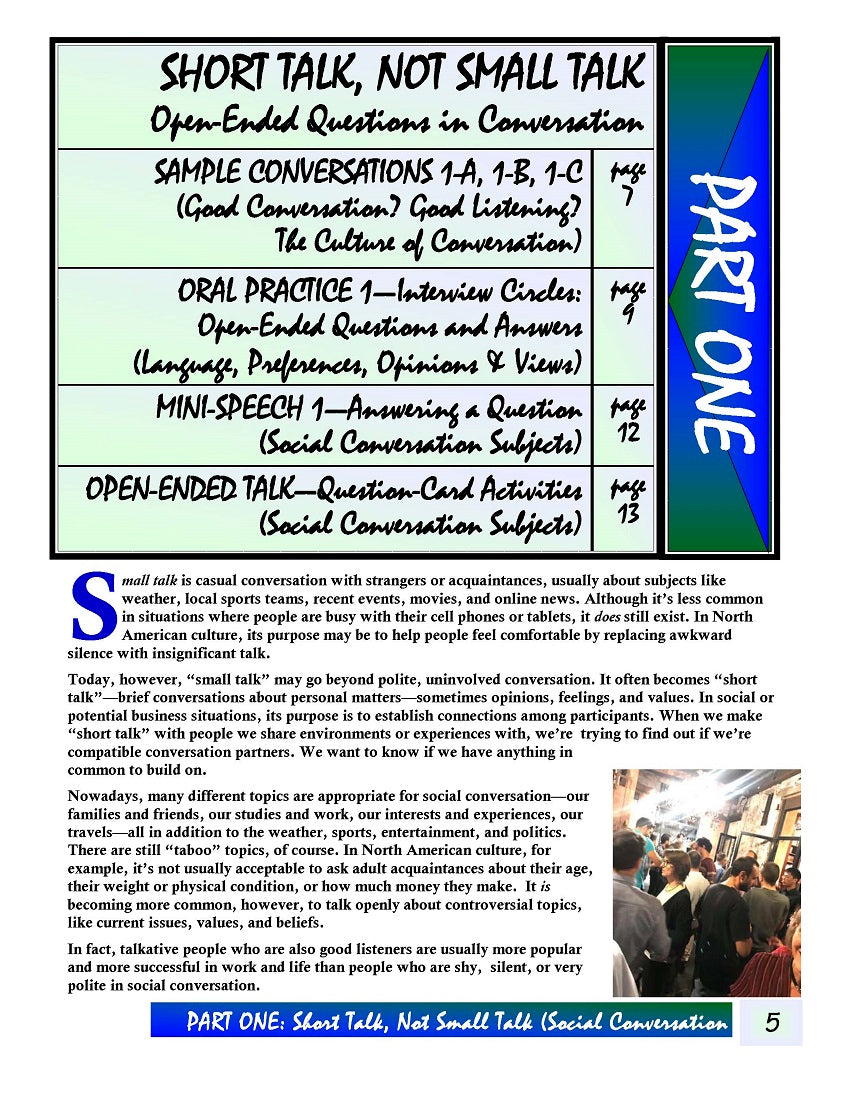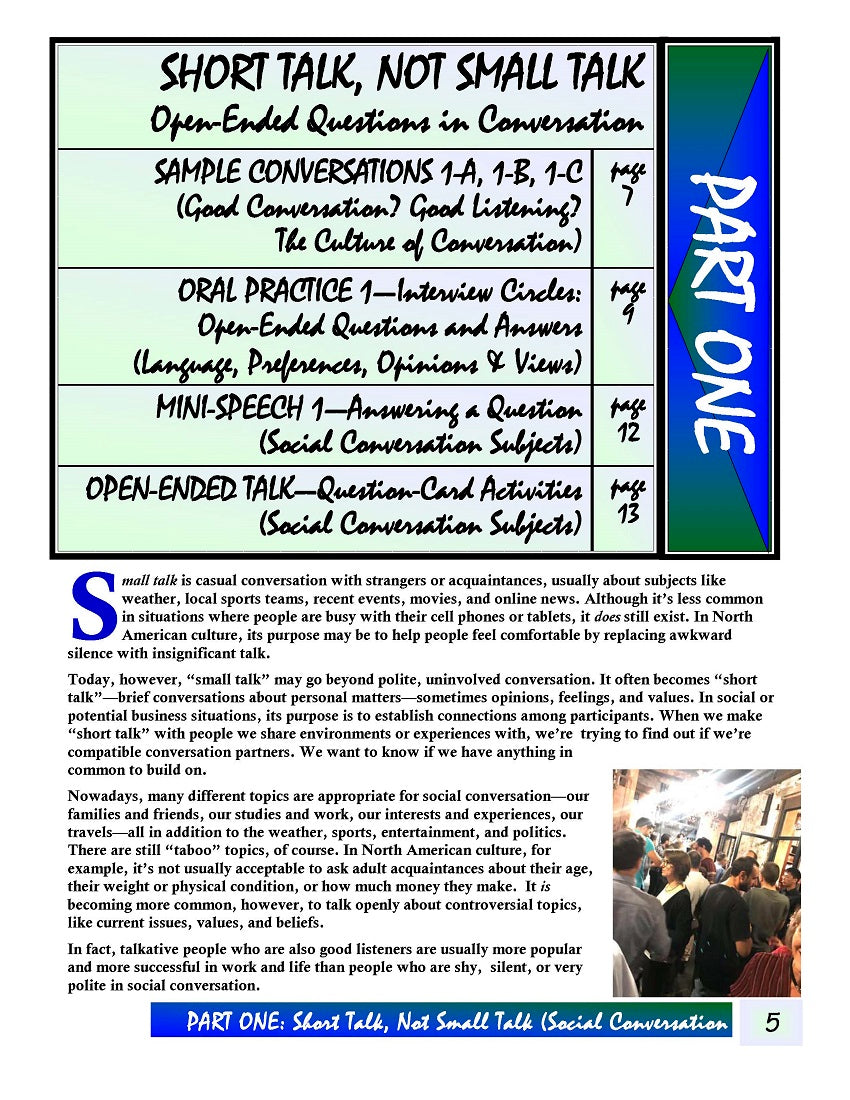Work/Life English
E-10.03 Make “Short Talk, Not Small Talk” to Connect Virtually & in Reality
E-10.03 Make “Short Talk, Not Small Talk” to Connect Virtually & in Reality
Part One of Speaking: Oral Language Skills for Real-Life Communication = Short Talk, Not Small Talk, pages 5-13
9 pages
Who It’s For: (Teachers & Helpers of) Progressing Language Learners Still Fascinated by Effective Techniques for Interacting with Others While Getting to Know Them(selves)
Why It’s Useful: With the difficulties of keeping in touch in today’s world, “Small Talk” is no longer just polite, uninvolved, meaningless conversation. Instead, it can involve (deeply held or newly acquired) beliefs, values, opinions, knowledge, and feelings. Therefore, let’s call it “Short Talk, Not Small Talk.” And let’s use “Open-Ended Questions in Conversation” to promote connection and understanding. Here’s some Instruction—and Samples, Practice, Activities, & Mini-Speeches—to help us all do so.
What You’ll Do:
[1] First off, there’s instruction on “How to Become a Good Conversationalist in Social Situations.” With suggestions like “ask interesting open-ended questions,” “add detail to your responses,” “listen carefully,” “be honest,” or “help others feel comfortable,” it encourages text users to pay attention to examples of (in)effective social conversation in real life and in the aural/oral media.
[2] Sample Conversations 1-A, 1-B, 1-C invite readers of the text / listeners to the available Audio to judge “Short Talks” as “Good Conversation / Listening (or Not)—and to think about “the Culture of Conversation.” Oral Practice 1 gives instructions for “Interview Circles” that make use of (supplied) Open-Ended Question Cards that address “Language, Preferences, Opinions, & Views.”
[3] Mini-Speech 1 has participants draw Cards with provocative questions to answer in front of a group. While making notes on what they hear, listeners encourage each speaker. Then they react and help with commentary.
[4] Open-Ended Talk suggests “More Question-Card Activities on Social-Conversation Subjects.” Their appealing titles are “Comparing Answers,” “Conversational ’Roles’,” “Truth or ’Put-On’,” “What’s the Question,” & “Getting to Know You.” Have fun with these ideas. You may or may not want to apply them to the pre-prepared Open-Ended Questions for Social Conversation Cards downloaded in E-10.04a.
Couldn't load pickup availability


